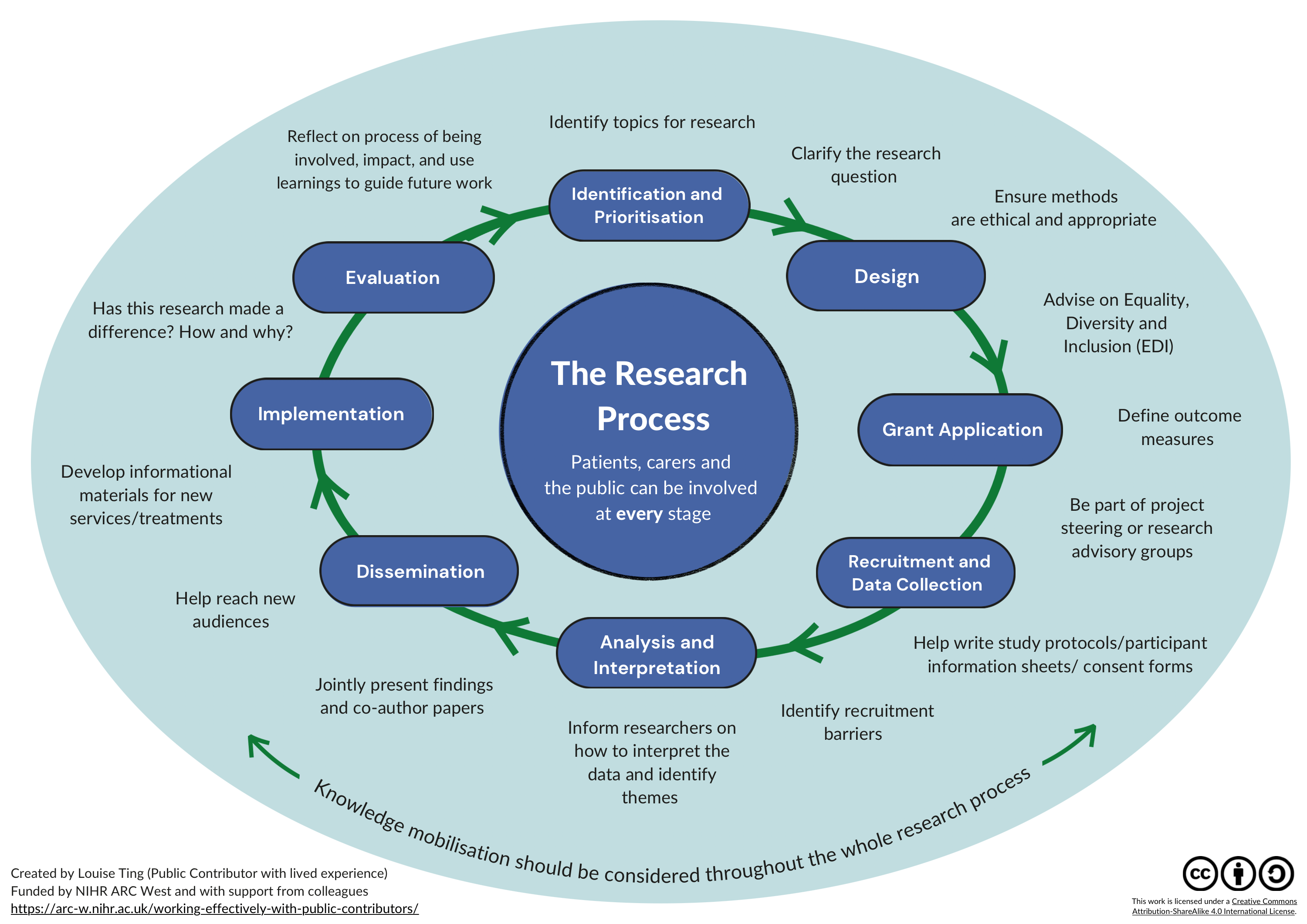
How can PPI contributors help you with your project?
PPI contributors will give your project another viewpoint and may well bring up issues that might not necessarily arise without their input.
They can:
- Review early draft research proposals from a public, patient or service user perspective
- Support project funding applications
- Attend early scoping or steering group sessions
- Consider ethical issues and attend ethics committee meetings
- Check plain English documents. Are they clear and not too lengthy?
- Co-author reports and publications
- Help disseminate findings
- Help generate and deliver publicity for the research outcomes
- Help change practice based on your research (knowledge mobilisation)